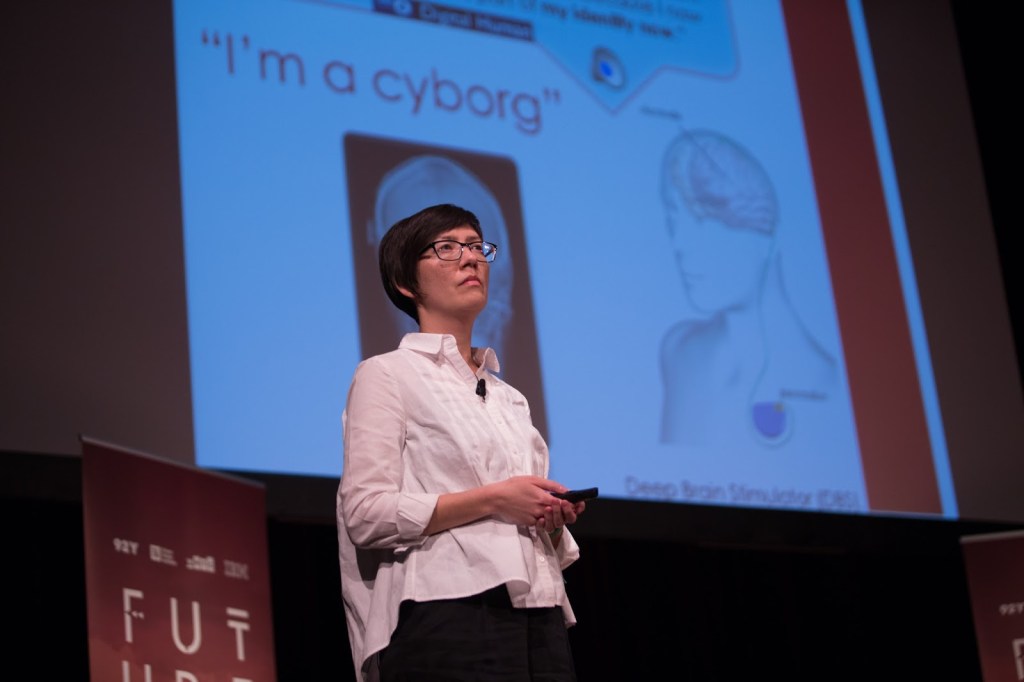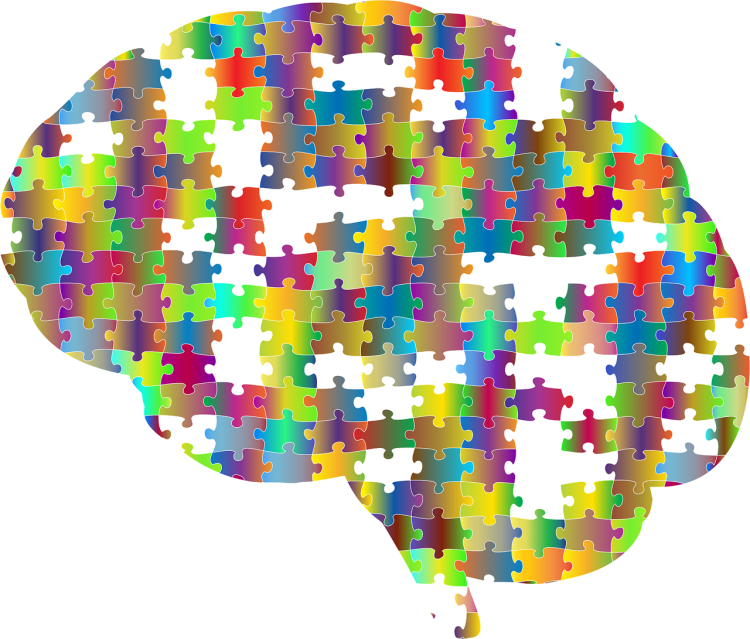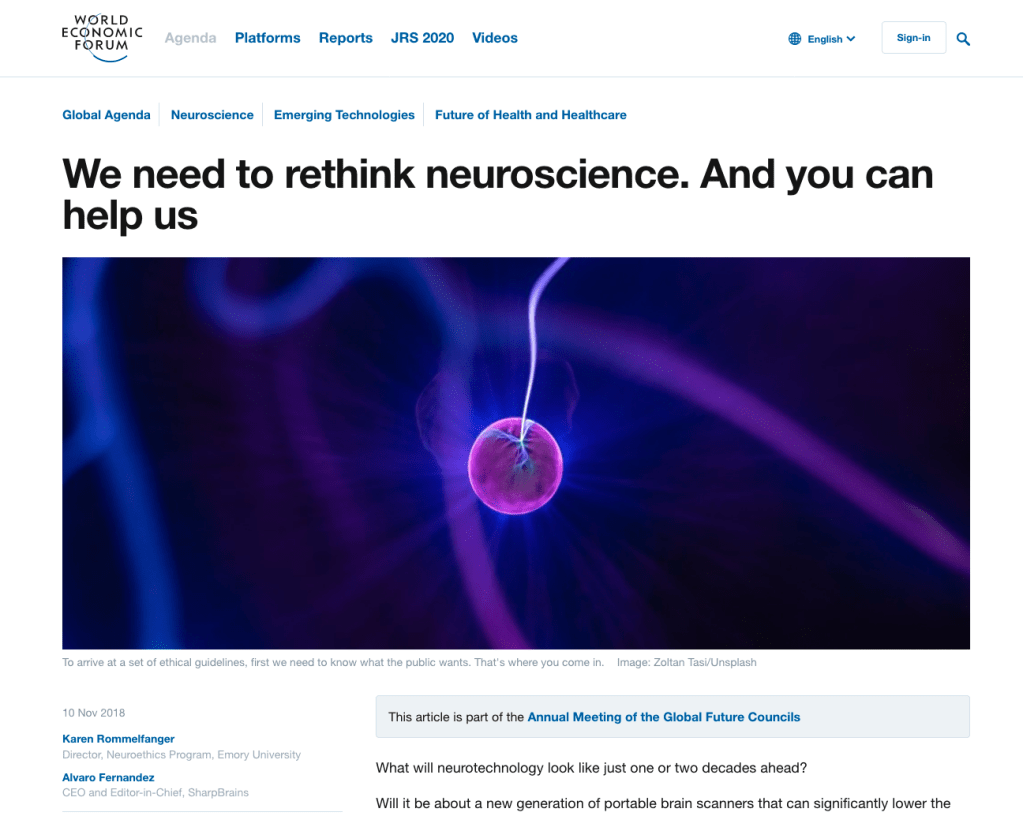IoNx Neuroethics Lab
Research arm of the Institute of Neuroethics Think and Do Tank

Neuroethicists explore the ethical, legal, and social implications of existing and emerging neuroscience.
Brain Computer Interfaces and Identity
Can brain interventions change who we are? Who gets to decide if it matters?
We increasingly understand that the brain is the site of decision-making, emotion, and memories. Brain injury and interventions have made clear that fundamental features of identity and self are more fragile and less immutable than we once thought. In the Rommelfanger Lab, we explore patient perceptions of identity and ethical, legal, and social implications of interfacing with a computer or even another brain whether in a clinic, military, or in the commercial space. We also explore the potential of a trajectory of neurotechnology interfaces conceived as objects (tools for humans to use that extend humanity) or collaborators (that are independent entities). We aim to help promote neurotechnology that is inclusive, informed by the voices of end-users, and ultimately beneficial for the global community.
Mind body assumptions and clinical care
Can placebo therapies be ethically administered to patients with functional “psychogenic” disorders? Does this ethical evaluation vary with western vs. east Asian philosophical traditions?
“It’s all in your head” has an exquisitely complex meaning in the age of neuroscience’s study of “the mind.” Western folk wisdom that has defined “real” illness and “real” medicine and has pitted the biological against psychosocial realities. Insights from neuroscience have demonstrated there is no bright line between the brain/mind and the body. Yet, we still fail patients by shortchanging our understandings of holistic brain health. In the Rommelfanger Lab, we use placebo therapy and Functional Neurological Disorders as paradigmatic cases to understand how physician beliefs about the mind and the body impact patient care and treatment strategies. We aim to facilitate enhanced multi-dimensional perceptions for wellness that reduce stigma and offer greater societal relief from medically unexplained illnesses.
Global Culture and Neuroethics
Can deeper understanding of cultural perspectives create higher impact collaborative global neuroscience endeavors?
More than ever, neuroscience is a global community endeavor. Science and scientists, especially in neuroscience, cannot extricate itself from the culture and cultural views about the centrality of the brain in human existence. Am I basically my brain, or is there more? How should a notion of “neuroprivacy” be conceived to be globally relevant? The Rommelfanger Lab, in collaboration with the International Brain Initiative, convenes a series of meetings for capacity-building and co-creation of recommendations for a culturally-aware approach in neuroethics. With this approach, we aim to facilitate trust, collaboration, and knowledge sharing . We also aim to enable shared identification of the unforeseen short- and long-term risks to maximize the positive global impact of neuroscience research.
Mapping neuroethics for neuro-innovators
How does neuroethics align (or not) with the perceived and actual creative process and outputs of neuroinnovation?
Science is not just about science. Neuroscience, like all science, is also about national pride and economic power. Science is culturally embedded. The products of neuroscience are a social mirror for our culture and values. How we imagine future neuroinnovation, how we determine goals for our technologies, and how we envision the ultimate uses of our technology are intimately related to often assumed and unarticulated values of an ecosystem of stakeholders. In the Rommelfanger Lab, we assess the creative and procedural processes of neuroinnovators. With this systematic approach, we then map the neuroethical interests, pain points, and neuroethical bottlenecks for neurotech innovators. Through these systematic assessments, we aim to design pathways to utilize neuroethics to align the interests of neuroinnovators with societal values.

How will neuroscience and emerging neurotech impact identity, personhood, privacy and pretty much life as we know it?
Join us and let’s find out.
Contact: Karen Rommelfanger, PhD director@instituteofneuroethics.org
Research Opportunities
We offer real-world research opportunities that we hope will catalyze actionable and sustained societal benefit. If you’re interested in joining us, please send a CV and statement of interest related to these projects or those listed on http://www.instituteofneuroethics.org. We have a limited number of positions, but do our best to match make people, ideas, and opportunities.
Contact director@instituteofneuroethics.org for more information.







